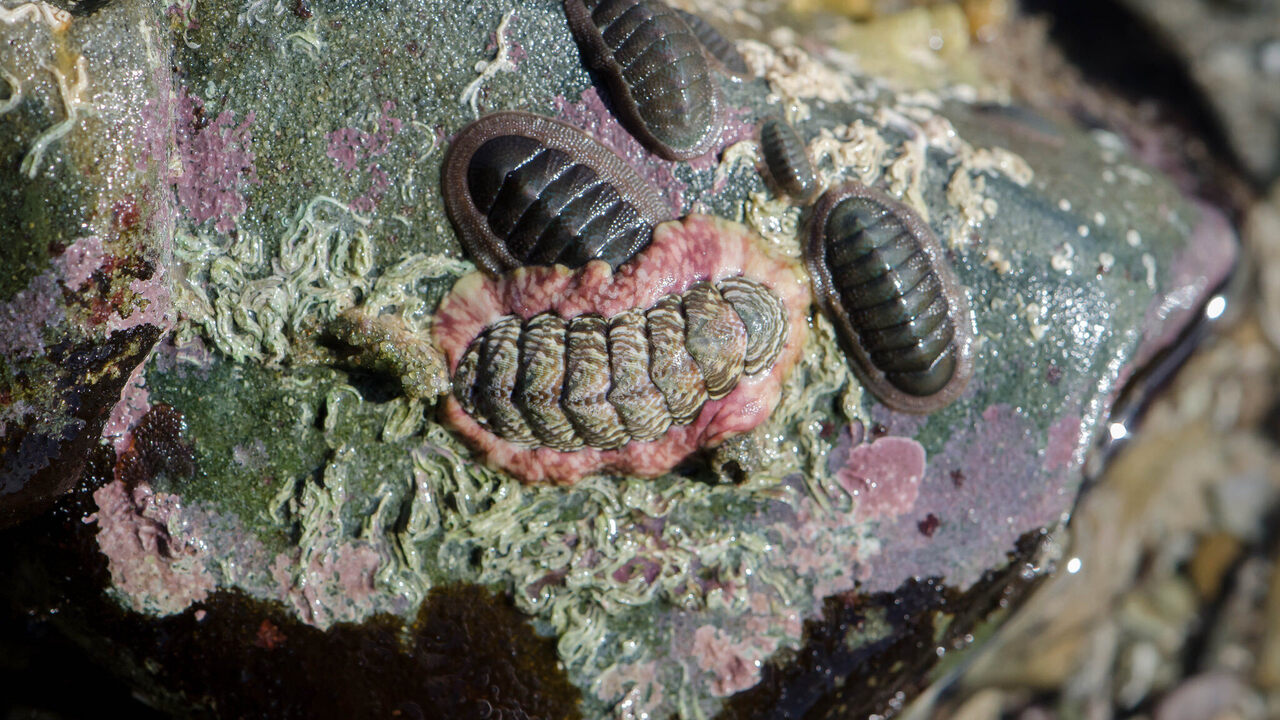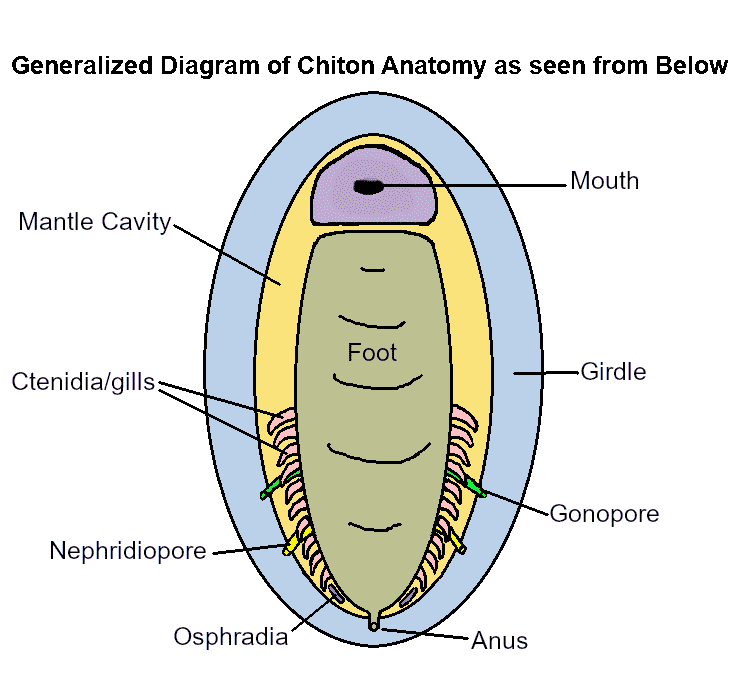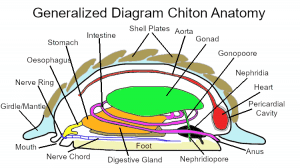
Do chitons have brains? What is a brain, anyway?
Posted on 04/15/2021 12:05:27 PM PDT by ETL

Do chitons have brains? What is a brain, anyway?
With eight separate, flexible plates of shell held together by a skirt of muscle called a girdle, chitons look a bit like armored pebbles, ready for battle. The marine mollusks aren’t actually suited for action. They spend most of their time stuck in place, suctioned to rocks in the intertidal zone. While they’re clinging, their radula, a sort of tongue barbed with scores of sharp “teeth,” scrapes algae and other food from the surface. For chitons, that’s about as exciting as it gets.
They might seem simple, uncomplicated, even boring, but Lauren Sumner-Rooney, an evolutionary biologist at the Oxford University Museum of Natural History, thinks that reputation is a little unfair. “Even things that we’ve considered very, very simple,” she says, “may have a lot more going on.” ...”
Chitons don’t have anything we’d generally consider to be heads, and it’s long been thought they don’t have brains, either, and instead sport a rudimentary, ladder-like nerve network. Sumner-Rooney and Sigwart argue in their paper that chitons aren’t really brainless, but rather have a brain that defies our expectations and understanding.

What’s going on in there?
When humans think of brains, we think of our own—two hemispheres, dizzy with coils, a pinky-beige helmet snugly ensconced in a skull. But brains in a lot of other creatures aren’t just scaled-down versions of ours.
Across species, the morphological differences between brains are vast and numerous—so much so that, in 2010, Stefan Richter, a biologist at Universität Rostock, and a slew of colleagues set out to codify a shared vocabulary for describing exactly what a brain is and isn’t. They laid out a working definition of “brain”—along with 46 other terms used to describe parts of invertebrates’ nervous systems—in a neuroanatomical glossary in the journal Frontiers in Zoology.
They defined a brain as a particular, distinctive cluster of neurons—specifically, “the most prominent anterior condensation of neurons.” Sumner-Rooney relies on this definition in her work, but she acknowledges, as Richter and company also note, that this umbrella leaves some species out in the rain—including a few generally thought to be capable of sophisticated tasks.
Animals with radial symmetry, such as jellyfish and sea urchins, don’t have a front or a rear, so there’s no place to put an “anterior [front] condensation” of neurons. But somehow they still manage to coordinate muscle movement and process sensory information coming in from across their bodies. “They pose quite a problem for very classical definitions, but they’re clearly very capable of complex tasks that we would usually attribute to a brain,” Sumner-Rooney says. Such a brain, she adds, “doesn’t quite fit with the image we have in our heads.”
In the case of a chiton, there is a dense concentration of nerve tissue inside what’s known as the circumesophageal nerve ring, a flattened cord around the top of the esophagus. If a chiton does have a brain, Sumner-Rooney reasons, the nerve ring might be the place to find it. ...”

A plate from a manual of New Zealand mollusks, 1913–15.
When Sumner-Rooney tells museum visitors about mollusk brains, things quickly escalate into lofty philosophical questions. “Instantly you make this connection between, ‘Ok, if that has a brain, does it have feelings? Is it aware that it’s alive?’” she says. She finds that it’s often hard for people “to separate the notion of brains from the notion of emotion, feeling, and a sense of self.”
But she isn’t studying consciousness, to whatever extent chitons are capable of “thinking” about the currents churning around them. Instead, she’s interested in what all those neurons are doing, what they’re capable of, and why. For example, some species of chitons demonstrate homing habits; they can roam to find food, and then find their way back. Does the nerve ring help make this possible? Maybe the neural ring has some role in supporting the hundreds and hundreds of eyes, or ocelli, that stipple many species’ shells. There’s evidence that these can perceive shadows passing overhead, and that chitons clamp down on their rocks when they do. Is it an integration of information or a response driven by reflexes—similar to a human jerking a hand away from a flame?
To learn more, researchers must look deeper at structure and behavior. Sumner-Rooney hopes to do both. Other strategies could involve electrophysiology—taking measurements directly from the nerves—severing portions of the nerve ring, or inserting dye into living or freshly dead specimens to retrace the connections. “One of the beautiful things about the nervous system is that they do just work in a similar way to electrical circuits,” Sumner-Rooney says. “You should be able to disentangle them using logic.”
Meanwhile, the work is a reminder that we have to use our own brains if we want to understand another species’, and this means watching out for pitfalls, such as seeing only what we’re looking for. “The interpretation of chiton anatomy may be historically stymied by circular logic,” the authors write. “If we assume that chitons are primitive, then we see their nervous system as primitive, and the nervous systems are seen as ‘proof’” of that simplicity, they add. Instead, we could expand our own minds at the same time that we expand our definition of what a mind might be.


Brrrrains!
Biden’s brain?
Apparently cognitive ability is highly over rated these days. Don’t even need it to become president.
Oh...I was expecting a study on the House and Senate Majority......





Bookmark


"Pork brains. I knew it, I knew it."
Can they fetch a ball?
Yes, if it’s about the size of a grain of sand, and appears in their tiny brains to be a food item.


They spend most of their time stuck in place, suctioned to rocks in the intertidal zone"I suck, therefore I am."
They and she have about the same mental capacity.
Disclaimer: Opinions posted on Free Republic are those of the individual posters and do not necessarily represent the opinion of Free Republic or its management. All materials posted herein are protected by copyright law and the exemption for fair use of copyrighted works.